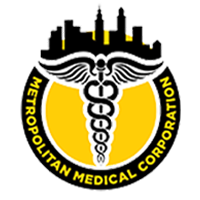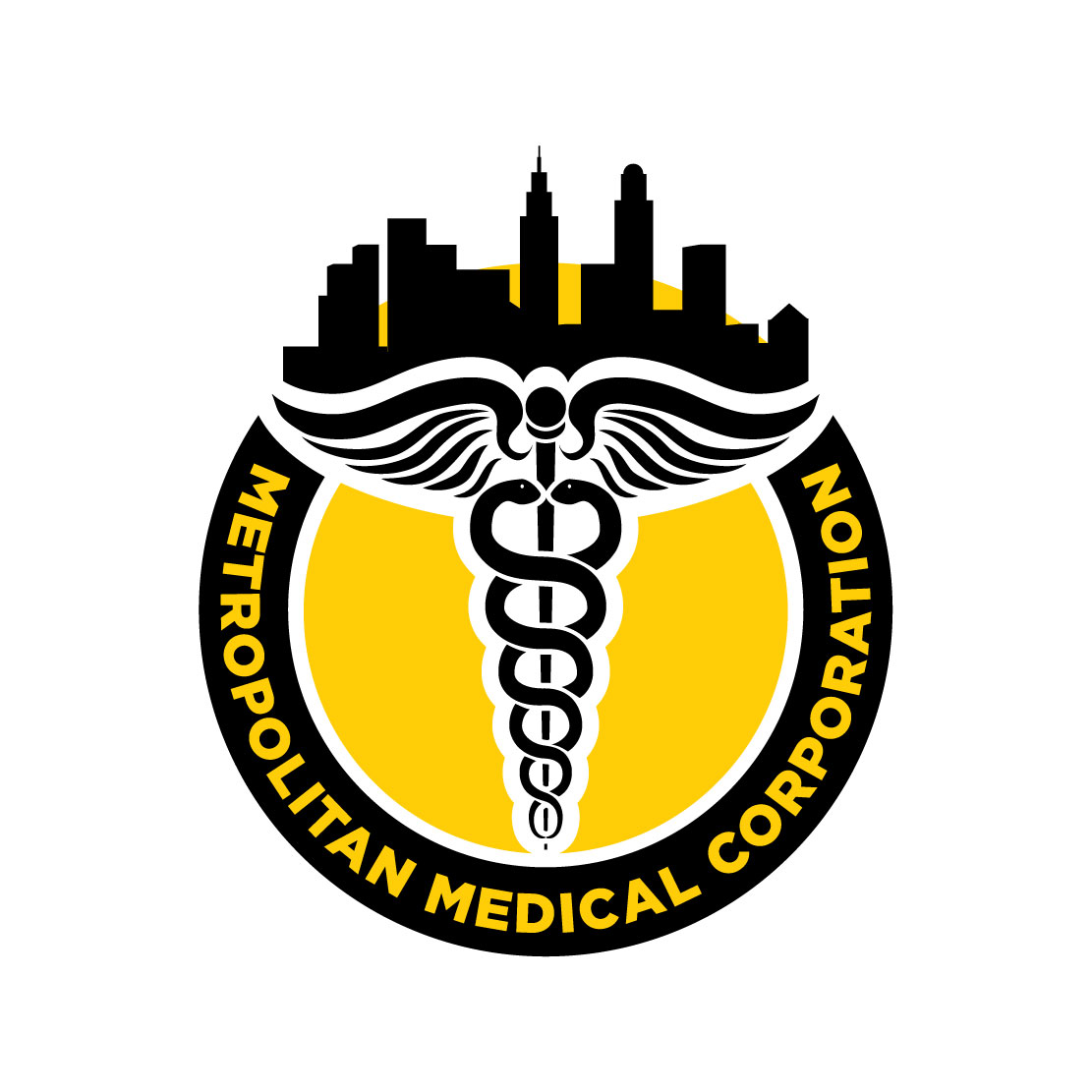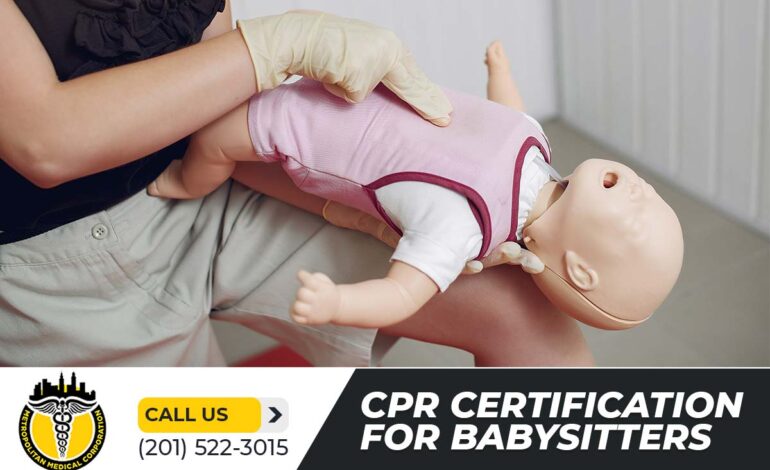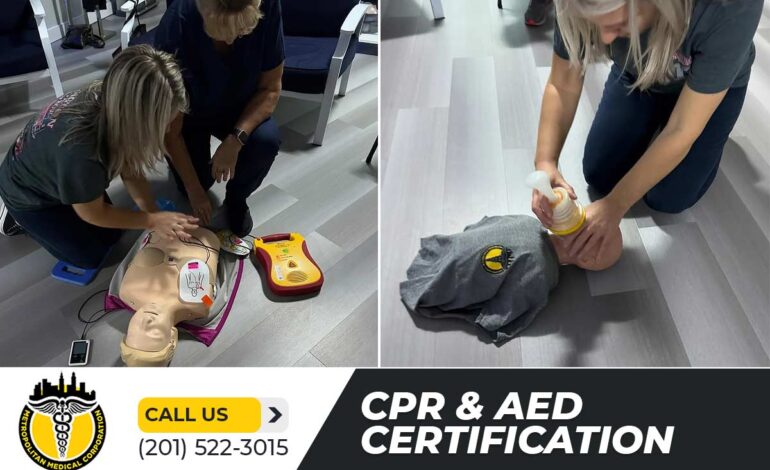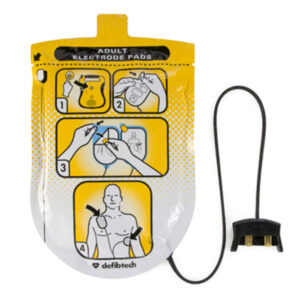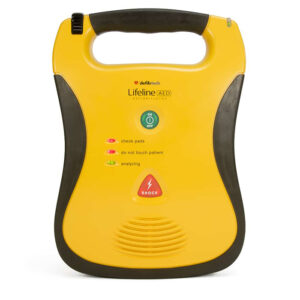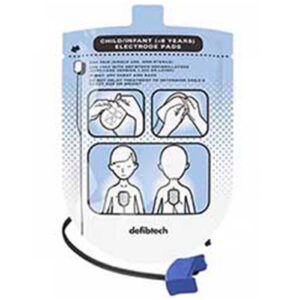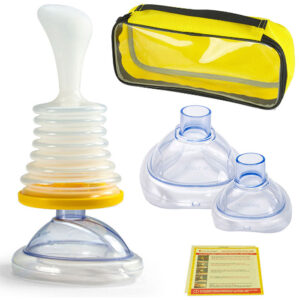CPR Certification Requirements for Babysitters in New Jersey
As a babysitter in New Jersey, ensuring the safety of the children in your care is a top priority. One way to boost your qualifications and give parents peace of mind is by obtaining CPR, AED, and First Aid certification. Not only is it a requirement for many child care providers, but it can also make you a more attractive candidate for parents. In this blog post, we’ll discuss the CPR certification requirements for babysitters in New Jersey, as well as how you can get certified with Metropolitan Medical Corporation.
CPR Certification Requirements for Babysitters in New Jersey
In New Jersey, child care providers, including babysitters, are required to maintain certifications in Adult, Child, and Infant (Pediatric) CPR, AED (Automated External Defibrillator), and First Aid. These certifications must include practical skills evaluations, which can be completed through in-person training programs. At Metropolitan Medical Corporation, we offer in-person Babysitter’s Training and Pediatric First Aid/CPR courses that will fully prepare you for these important certifications.
Our program is specifically designed for babysitters, providing education on:
· First Aid for emergencies and injury prevention
· Pediatric CPR & AED for children and infants
· Safety awareness to minimize risks
How Long Does a CPR Certification Last in New Jersey?
Once you complete the CPR, AED, and First Aid course at Metropolitan Medical Corporation, you’ll receive 1-year certification. The certification lasts for one year, after which you will need to renew it to maintain your status as a qualified child care provider. This ensures that you stay up-to-date with the latest techniques and safety standards.
How Old Do You Have to Be to Be a Babysitter in New Jersey?
In New Jersey, there is no minimum age to begin babysitting. However, you must be at least 16 years old to work for an employer. Babysitters younger than 16 can still care for children with parental permission, but they should be certified in CPR, AED, and First Aid to provide the safest care.
What Is a CPR Certificate?
A CPR certificate is awarded to individuals who complete a course that teaches them the knowledge and skills needed to provide cardiopulmonary resuscitation (CPR). The course includes a combination of theory and practical hands-on training. During the training, you’ll learn how to respond to cardiac and breathing-related emergencies for adults, children, and infants. The skills you learn in CPR training can be lifesaving in a variety of situations.
The Importance of CPR Certification for Babysitters
8 in 10 parents say they would pay more for a babysitter who is CPR certified!
This is because CPR-trained babysitters are seen as more capable in handling emergencies, giving parents peace of mind when leaving their children in someone else’s care. By getting certified, you’ll not only meet the state’s requirements but also increase your chances of securing babysitting jobs.
At Metropolitan Medical Corporation, we offer top-notch training for babysitters and child care providers in New Jersey.
Whether you’re looking to get your first CPR certification or need to renew your credentials, our Pediatric First Aid/CPR courses are designed to give you the practical knowledge and hands-on experience you need.
Contact us today at +1 201-522-3015 for more information and to schedule your training!
